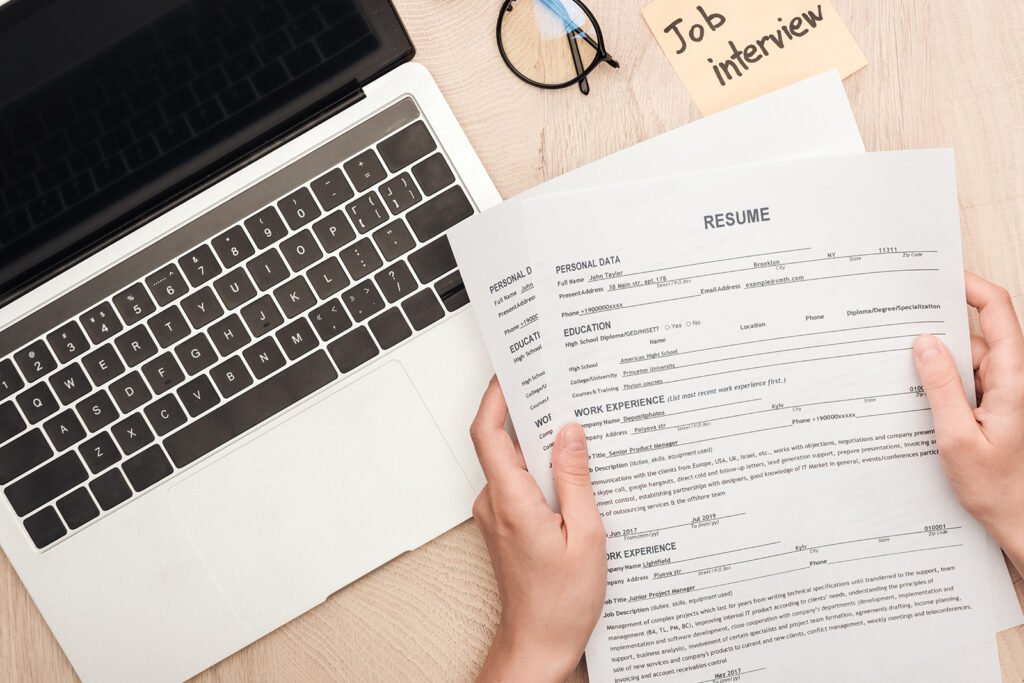Artificial Intelligence has brought transformative changes in various sectors, including the recruitment industry. AI tools are revolutionizing the entire recruitment process, improving overall efficiency and ensuring a more equitable hiring landscape. By automating tasks like resume and interview screening, all these tools have saved significant time and reduced costs. One of the most notable innovations is using AI in job search. Understanding this technology and its implications can significantly enhance job seekers’ chances of landing their desired roles. We’ll discuss the role of AI in resume screening in more detail.
What is AI Resume Screening?
AI resume screening refers to using advanced algorithms and machine learning techniques to automate the entire process of evaluating job applications. Unlike traditional methods, where human recruiters manually sift through resumes, AI-powered systems analyze large volumes of applications efficiently and quickly. These systems are designed to determine the most qualified candidates based on the predefined criteria set by the employer.
How Does AI Resume Screening Work?
- Keyword Matching: – AI tools can scan resumes for particular keywords linked to the job description. It involves skills, job titles, certifications and other relevant experience. It depends on your resume; the more it matches with the keywords, the higher the chances of being shortlisted.
- Pattern Recognition: – AI can identify patterns and correlations that might not be immediately obvious to human recruiters. For instance, it can identify candidates who have consistently advanced or acquired progressively responsible roles.
- Data Parsing: – AI job search includes parsing through different formats of resuming extracting required information, including work history, education and skills. It ensures that your application is considered, regardless of its format.
- Scoring and Ranking: – Once the data is extracted, AI assigns scores to each resume based on how well they match the job criteria. Candidates are then ranked, making performing AI talent acquisitions easier.

Benefits of AI in Resume Screening
- Speed and Efficiency: AI helps speed up the process of sourcing candidates by quickly evaluating the large volume of resumes. It allows organizations to determine swiftly top candidates and expedite the hiring process.
- Improve Candidate Shortlist: – Resume screening has gained importance through the AI hiring process. Candidates are shortlisted based on the required information matching with the job description. It helps determine who is eligible for scheduling interviews, completing a skill assessment or meeting business needs. AI screening tools ensure that proper screening criteria are pre-set and standard across every resume to form more consistency and assist in shortlisting quality candidates.
- Reduce Unconscious Bias: AI in recruitment helps provide powerful and bias-free data points. However, machine learning is susceptible to human hiring bias introduced through a data set. To avoid bias, clean the data relevant to names, locations, gender, date of birth, etc. New applicants are now considered based on their credentials rather than other heuristics.
- Hire at Scale: – AI tools help the playing field for small businesses so that they can compete with larger firms. Through AI, applicants’ evaluations can be done in days that used to take weeks without compromising quality. AI talent acquisition helps companies to manage multiple positions at a time. They continue to fill the positions of required candidates within the business.
- Cost Saving: Automating the resume screening process can save business costs. By reducing the time and resources necessary for review, Al allows firms to allocate their resources more efficiently.
Challenges and Considerations
With the excessive usage of AI in recruitment, there are some limitations and potential drawbacks that you should be aware of:
- Over-Reliance on Keywords: – Over-reliance on keywords can sometimes overlook candidates who may be highly qualified but use various terminology.
- Lack of Human Insights: – AI might miss nuances in a candidate’s background that the human recruiter considers, and according to that, they can acknowledge unique career paths or soft skills.
- Training AI on diverse data sets: – Every candidate is unique, and based on it, their resume varies. AI systems need to be adept at handling different formats and styles. Thus, it can be attained by training AI on diverse data sets, thus ensuring that it can understand and process a wide range of resumes.
Future of AI in Recruitment
Adoption of AI in recruitment is expected to improve, as 75% of recruiters plan to use AI by 2024. The AI market is predicted to improve by $1 trillion by 2028, underscoring the growing reliance on AI technologies.
At Providence Partners, we use AI talent acquisition tools to meet job requirements. For more details, you can contact us at 512-750-0778 or email us at info@localhost.



Recent Comments